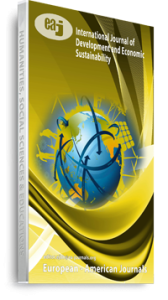There is no debate the climate on earth is changing but research conducted by Walters and Djokic (2022) presented evidence that established, studies that attribute pollution or manmade cause and effect in climate change research are based on junk science. The study presented evidence that suggested, scientific data analysis linking manmade causes or pollution to climate change does not exist. Walters and Djokic Quantitative Analysis Factor Distortion Theory expanded Eddison Walters Modern Economic Analysis Theory which was developed by Walters (2020A) and was expanded by Walters and Djokic (2022). Walters and Djokic Quantitative Analysis Factor Distortion Theory which was explained in Walters and Djokic (2022) resulted in proposed changes by the researchers to restore the reliability and creditability of data analysis in scientific research. The researchers called for the implementation of changes to American Psychological Association (APA) standards aimed at avoiding junk science such as research that incorrectly links pollution or manmade causes to climate change without scientific evidence based on scientific data analysis from being accepted into the body of literature as scientific research (Walters, 2020: Walters, 2021; Walters & Djokic, 2022). The foundation of Walters and Djokic Quantitative Analysis Factor Distortion Theory is grounded in the principle, of “all else being equal”, which has been a long-established principle for the scientific analysis of data to ensure unknown factors do not distort the results of data analysis. The current study applied the principles of Walter and Djokic Quantitative Analysis Factor Distortion Theory for evaluating the creditability of directing taxpayer resources to green energy policies aimed and reversing climate change. The current study also considered what segment of the population benefits the most from green energy policies and what segment of the population shoulders the cost burden. The current study considered the opportunity cost of allocating taxpayer resources to implement green energy policy by considering challenges facing American taxpayers where the results of investments have quantifiable scientific measurements for successful implementation rather than committing resources to implement green energy policy with no quantifiable scientific measurements for successful implementation.
Keywords: Credit to Private Sector, Educational Investment, Unemployment, government recurrent expenditure, labour force participation rate

